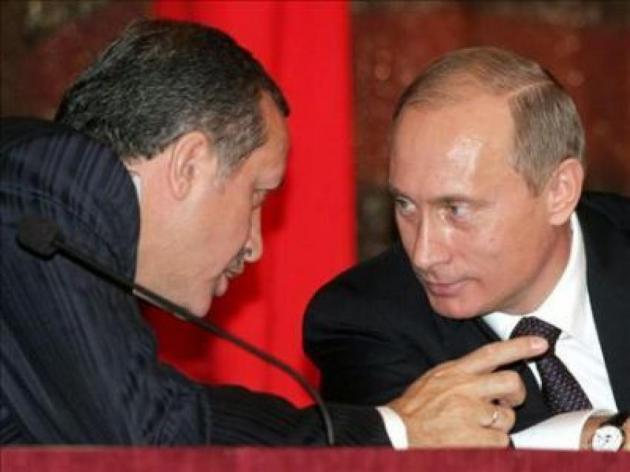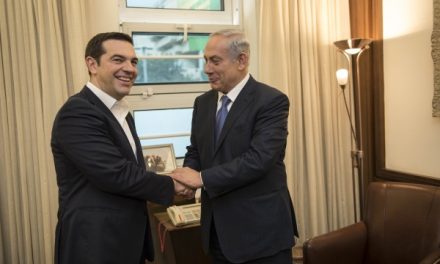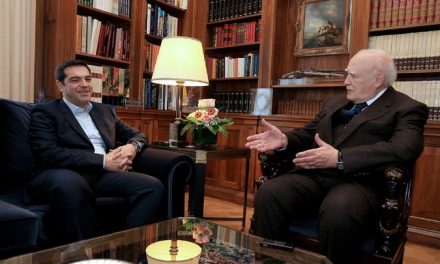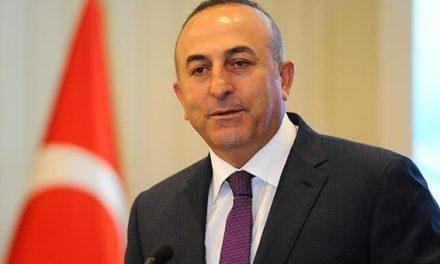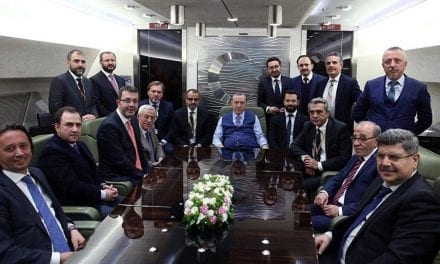By Nick Ashdown, Ahval
Turkey’s decision to not join almost 30 western countries in expelling over 150 Russian diplomats last week was yet another indicator of the decline in relations with Ankara’s traditional western allies.
The diplomatic expulsions came after the March 4 attack on former double agent Sergei Skripal and his daughter in Salisbury, England with the Soviet-made nerve agent Novichok. The United Kingdom blames Russia for the attack, which Moscow denies.
Ankara’s decision wasn’t a surprise, since relations with its western partners are at an all-time low and recent cooperation with Russia has been going well, but experts still note it’s a significant move.
“They prioritized continued good relations with Moscow over even their closest western ally [the UK],” said Aaron Stein, resident senior fellow at the Atlantic Council.
Turkey’s foreign ministry condemned the attack nearly three weeks after it occurred without naming Russia. President Recep Tayyip Erdoğan then told Turkish reporters on March 28 that Turkey wouldn’t expel any Russian diplomats based on “a claim.”
Since a rapprochement between Ankara and Moscow following Turkey’s downing of a Russian SU-24 bomber near the Turkish-Syrian border in November 2015, the two countries have been coordinating military operations in Syria.
European studies lecturer at King’s College Alexander Clarkson says Turkey is unwilling to jeopardize its goals in Syria by angering Moscow, but Ankara also doesn’t want to set a precedent that could be used by frustrated western countries against Turkey itself.
“Turkish intelligence services and diplomats in Europe are getting very close to crossing the same line that the Russians have done several times in the last couple of years,” Clarkson told Ahval.
“You’re beginning to see the same level of frustration with Turkish diplomats, intelligence services and military among European diplomats that they have had with Russia.”
Turkey’s spy agency MİT has been accused of harassing and spying on Turkish nationalsand politicians in Germany , planning assassinations in Europe,” recruiting spies in Greece, and even of involvement in homicides in London and Paris.
Clarkson says Turkey’s military operations in Syria are also making its neighbours nervous.
“Turkey is now pursuing what is basically a policy of territorial expansion in Syria,” he said.
“[The Europeans] are sitting there wondering, “If they’re willing to carve out this little mini-empire in Syria, how serious are they when they start threatening islands in the Aegean or Cyprus?”
Turkey and Russia have significant economic relations, having done $21.6 billion in trade last year. The TurkStream project will deliver natural gas from Russia to Turkey via a pipeline under the Black Sea, and Russia will build and operate Turkey’s first nuclear power plant, Akkuyu, in southern Turkey.
Russia is the stronger of the two powers, but Turkey has handled the relationship shrewdly, particularly in Syria.
“As Russia seeks to manage and end the Syrian civil war, they’ve made a number of concessions to Turkey, and are now dependent upon Ankara to essentially manage the opposition,” Stein said.
Russia opened airspace for Turkey ahead of Ankara’s Operation Olive Branch to capture the Afrin canton from US-ally the Democratic Union Party (PYD). Russian forces also recently moved out of Tel Rifaat ahead of Turkey’s allies, the Free Syrian Army (FSA) militant group, entering the city in northwestern Syria.
Atlantic Council nonresident senior fellow Dimitar Bechev says Ankara has a coherent strategy in its cooperation with Moscow.
“Engage Russia, avoid conflict, soft balance it where needed, use [the relationship with Russia] to gain leverage vis-à-vis the West. It’s been in the making since the late 1990s, i.e. before Erdoğan or Putin,” Bechev wrote to Ahval in an email.
He says it’s unlikely that Russia will replace NATO and the EU as Turkey’s permanent allies.
“For all the acrimony, the EU is [Turkey’s] dominant economic partner while NATO’s Article 5 is the ultimate insurance policy. But Turkey wants to diversify its alliances as much as possible — without cutting links to the West.”
Moscow also stands to gain from the burgeoning relationship.
“Russia, besides [valuing] the benefits of bilateral relations, values the fact that Turkey often declines to follow Western efforts to challenge Russian interests (Georgia in 2008, Crimea in 2014, Syria, the Skripal case),” wrote Timur Akhmetov, a Turkey-based researcher for the Russian International Affairs Council, in an email to Ahval.
“Another important dimension of this is that Turkey, as a NATO member state, can to some extent influence the weather inside the [NATO] alliance in favour of more dialogue with Russia.”
Turkey’s cooperation with Russia is a major sticking point with its NATO allies.
NATO is perturbed by Ankara’s announcement in December that it had concluded an agreement to purchase two of Russia’s S-400 long-range air and missile defense systems , possibly as a safeguard against another attempted coup.
The S-400 collects data about aircraft in its vicinity, which will include the US-made F-35 fighter jet, 100 of which Turkey is planning on adding to its fleet.
“There’s always concern that the Russians can get access to this internal database and get a leg up on what is supposed to be the frontline fighter for western air forces for the next 50 years. That’s a big deal,” said Stein.
He says the procurement may be for political, rather than economic or defense reasons.
“[Erdoğan] had the option to actually get better deals from both the Europeans and the Americans, and he chose the Russians, who aren’t giving him any technology transfer except token stuff on some ancillary systems, for what I assume to be political reasons to solidify this relationship.”
Stein says the S-400 deal benefits Moscow no matter what happens.
“Turkey’s purchase of the S-400 is absolutely zero-lose for [Russia], even if the deal collapses. They get to drive tensions within the [NATO] alliance and they get to take what had been during the Cold War a staunch anti-Soviet power […] and make it a more neutral one,” he said, referring to Turkey.
However, Stein says NATO is very strong right now, thanks to Russian aggression acting as a galvanizing force, with defence spending rising and more joint exercises.
“NATO is more healthy now than it has been in the last decade. Turkey is an irritant, but NATO is far more functional than it used to be,” he said.
Turkey is still showing interest in both the US-made Patriot surface-to-air missiles and a European missile system from the Franco-Italian consortium Eurosam. However, US senators have called for sanctions against Ankara in response to the S-400 deal.
“I would say, in general, nobody has any idea what to do about Turkey anymore,” Stein said.
“It’s gone so far off the rails that there’s really no policy that anyone can reasonably come up with, so everybody’s just trying to manage things.”
Clarkson says the EU-Turkey relationship is actually much more important than the US-Turkey one.
“The US has a security relationship with Turkey, but the security, border, economic, social, diasporic relationship that’s really fundamental is between the European Union and Turkey. It’s a connection at all levels of society.”
He says this gives the EU more influence over Turkey, but this can go both ways with Turkey’s influence over its huge diaspora in Europe.
“On the one hand the EU has far more leverage on Turkey [than the US], but the EU is far more reluctant to use that leverage, because using it has far more unpredictable consequences for the Europeans than the US.”

